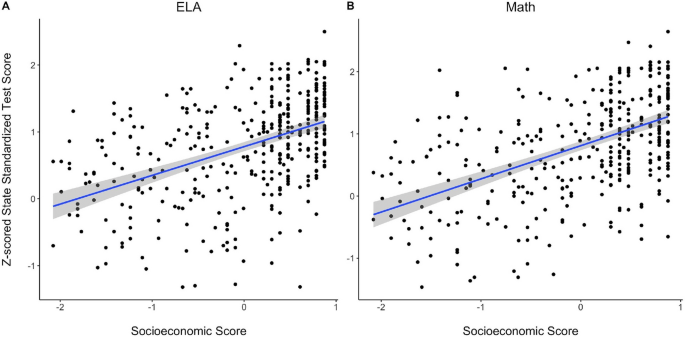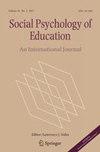Growth mindset as a protective factor for middle schoolers at academic risk
IF 3.2
2区 心理学
Q1 PSYCHOLOGY, EDUCATIONAL
引用次数: 0
Abstract
Abstract Growth mindset has been shown to predict academic achievement in a variety of student populations, though the strength of the relationship can vary depending on the characteristics of the students examined. Using a large-scale sample of middle school students from a diverse district in the United States, we examine how multiple facets of students’ experiences and background characteristics may interact to impact the relation between mindset and academic achievement. We consider whether the risk factors of socioeconomic status (including a student’s daily experience of that status) and recent school transition interacted with mindset in predicting academic achievement. We show that mindset is most predictive of academic achievement in students with two academic risk factors. These results highlight the importance of context when considering how mindset might be used to improve academic achievement for students at the greatest academic risk.

成长心态对中学生学业风险的保护作用
成长心态已被证明可以预测各种学生群体的学习成绩,尽管这种关系的强度可能因学生的特征而异。我们以美国不同地区的中学生为样本,研究了学生经历和背景特征的多个方面如何相互作用,从而影响心态与学业成绩之间的关系。我们考虑社会经济地位的风险因素(包括学生对该地位的日常经历)和最近的学校转学是否与预测学业成绩的心态相互作用。我们发现,心态最能预测有两个学业风险因素的学生的学业成绩。在考虑如何利用心态来提高学业成绩时,这些结果突出了环境的重要性,这些学生面临着最大的学业风险。
本文章由计算机程序翻译,如有差异,请以英文原文为准。
求助全文
约1分钟内获得全文
求助全文
来源期刊

Social Psychology of Education
PSYCHOLOGY, EDUCATIONAL-
CiteScore
5.40
自引率
3.40%
发文量
59
期刊介绍:
The field of social psychology spans the boundary between the disciplines of psychology and sociology and has traditionally been associated with empirical research. Many studies of human behaviour in education are conducted by persons who identify with social psychology or whose work falls into the social psychological ambit. Several textbooks have been published and a variety of courses are being offered on the `social psychology of education'', but no journal has hitherto appeared to cover the field. Social Psychology of Education fills this gap, covering a wide variety of content concerns, theoretical interests and research methods, among which are: Content concerns: classroom instruction decision making in education educational innovation concerns for gender, race, ethnicity and social class knowledge creation, transmission and effects leadership in schools and school systems long-term effects of instructional processes micropolitics of schools student cultures and interactions teacher recruitment and careers teacher- student relations Theoretical interests: achievement motivation attitude theory attribution theory conflict management and the learning of pro-social behaviour cultural and social capital discourse analysis group dynamics role theory social exchange theory social transition social learning theory status attainment symbolic interaction the study of organisations Research methods: comparative research experiments formal observations historical studies literature reviews panel studies qualitative methods sample surveys For social psychologists with a special interest in educational matters, educational researchers with a social psychological approach.
 求助内容:
求助内容: 应助结果提醒方式:
应助结果提醒方式:


